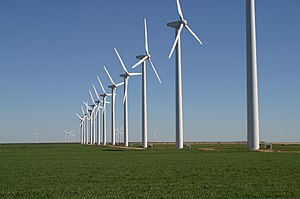Smith’s Bill – HB1714 – Makes Perry’s Texas Even More of a Paradise for Polluters and is expected to be heard in the Texas House sometime on Thursday
Contact your representative (don’t know who that is . . . click here) and tell them to vote NO on HB 1714
On April 17th, an explosion at the West Fertilizer plant killed 15 people – mostly first responders, and injured hundreds more; that plant had been cited 5 times in 6 years by three enforcement agencies for failing to follow the law. Leaders of Texas’ environmental organizations called on state legislators to protect against the next environmental disaster by rejecting Rep Wayne Smith’s 1714 which would eliminate provision in Texas environmental law requiring more inspections and tougher enforcement for polluters who have poor record with the state or federal environmental agencies.
“Leadership needs to improve regulations, not weaken them further,” said Tom “Smitty” Smith, director of Public Citizen’s Texas office. The Texas Legislature will consider HB 1714 by Representative Wayne Smith (R-Baytown) in the Texas House that would further weaken the permitting and enforcement processes.”
“HB 1714, would eliminate enhanced inspections of companies that have a history of environmental violations at a time when it is clear that the state and its citizens would benefit from having more scrutiny of companies that violate their permits. This bill would also reduce public disclosure of the state’s evaluation of company compliance histories, making it even more difficult to distinguish the bad actors from the good actors.”
“While the facility at West, TX may have been too small to have qualified for the enhanced inspections as the law is currently written,” continued Smith, “it begs the question, should we be weakening this oversight rather than enhancing it in order to prevent these types of tragedies?”
Years of state budget cuts and lax regulations have left communities at risk.
“The West Fertilizer incident shows how badly the TCEQ has failed to protect Texans under Governor Perry’s ‘paradise for polluters’ administration,” said Karen Hadden, executive director of the Sustainable Energy and Economic Development (SEED) Coalition. The TCEQ failed to inspect the plant even after three state and federal agencies found five violations at that plant over the last six years. The plant was operating without the proper permits and failed to properly train their workers, label dangerous products or to develop a worst case accident plan.
“Texas has a program that is supposed to target companies that have poor compliance records with extra inspections. The West Fertilizer plant was “unclassified” – meaning the TCEQ didn’t take the time to look at the plant’s record. Had TCEQ inspected the West Fertilizer facility, we can only hope that they might have found the 270 tons of explosives at the site and 15 people might not have died.”
Budget cuts have real consequences. Over the last 4 years, funding for TCEQ has been cut back 34% and 295 employees have been laid off.
“TCEQ doesn’t have nearly enough inspectors for the number of facilities it is responsible for. Facilities are not routinely inspected and the agency’s response to complaints is far from adequate. In 2006, a nearby resident reported a gas leak at the West Fertilizer facility and it took the TCEQ 11 days to travel the 17 miles from Waco to West to follow up,” pointed out David Weinberg, executive director of the Texas League of Conservation Voters, and further illustrates TCEQ’s ineffectiveness.” (See westfertilizerinfo.com for TCEQ files)
As the events of the past two months have shown, the push to hasten the permitting process, weaken the regulatory oversight processes, and abandon due diligence and planning for both large and small industrial facilities has real life consequences.
Hadden said, “These disasters serve as a reminder of the necessity for strong and effective land use regulations, as well as proper enforcement systems to ensure public safety and prevent toxic releases into the environment. Regulations that reduce the likelihood and size of industrial accidents protect workers, nearby neighborhoods and residents, and minimize the potential loss of life when accidents do happen, as they always will.”
“The Texas Legislature must act now to ensure existing and new regulations protect workers, communities and our state’s natural resources on which we all depend,” concluded Smith.





